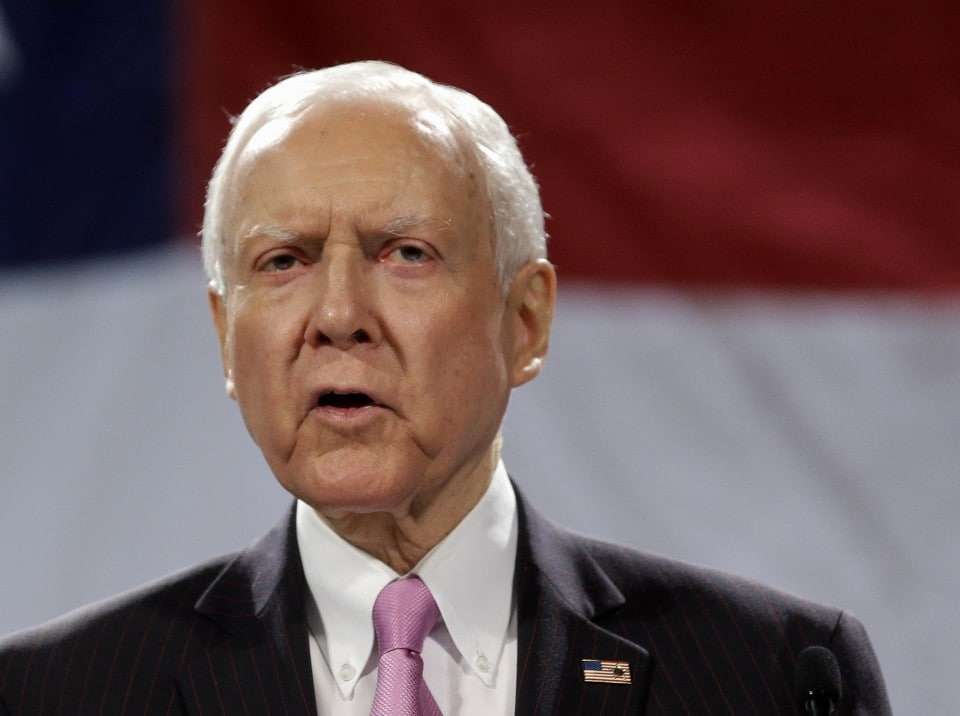The Volokh Conspiracy
Mostly law professors | Sometimes contrarian | Often libertarian | Always independent
Sen. Orrin Hatch on the Supreme Court: 'Activist Justices have rewritten our laws'

Sen. Orrin Hatch's office passed along this item, which I thought would be very interesting for our readers, since it tells us something about how at least some Senate Republicans will be arguing about the forthcoming nomination; naturally, if a Democratic senator wants to pass along something similar from the other side, I'd love to publish it as well:
President Trump is expected to announce his nominee to the Supreme Court soon. My Senate colleagues and I will then assess the qualifications of the President's choice and, if we determine he or she is acceptable, confirm the nominee. Replacing the late Justice Antonin Scalia will be a critical moment for our country and our Constitution.
Before our evaluation of the nominee begins, I wish to outline the principles that have guided me in assessing the qualifications of the last twelve Justices appointed to the Supreme Court. These same principles will guide me - and should guide my Senate colleagues and the public as well - in considering President Trump's nominee. They are not new principles. Indeed, they come from the Constitution itself, which the Founders of our great nation wrote and ratified nearly 230 years ago.
The Constitution establishes a government of limited powers - one that promotes self-governance, is grounded in the rule of law, and ensures a proper separation of powers between three branches of government. Of these three branches, the judicial branch was expected to be - in the words of Alexander Hamilton - "the least dangerous" because it would lack power to control revenue or command the armed forces. Knowing that the Founders intended the judiciary to be limited in scope and influence helps us to better understand the type of judge who should serve on the Supreme Court.
Specifically, nominees to the Supreme Court must have a judicial philosophy of restraint and humility so that they view their role as limited to faithfully interpreting the law. It is not a Justice's role to make or change laws by imposing his own policy preferences instead of what Congress actually passed. It is not her role to prejudge issues by looking beyond the text of the law to consider her personal views and feelings. And it is not a Justice's role to choose winners and losers based on subjective beliefs that favor one group over another.
Unfortunately, past presidents have not always nominated Justices who understand their proper role under the Constitution. Nor have my Senate colleagues always focused on these guiding principles, opting instead to assess whether a particular nominee will advance certain policy preferences. As a consequence, we have had to endure activist Justices who have viewed themselves more as super-legislators than as impartial interpreters of the law.
Through their decisions, these activist Justices have rewritten our laws. They have interpreted the Constitution in ways that take power from the people and their elected representatives to make laws. They have also narrowed the meaning of other provisions, such as the First Amendment, in ways that limit the people's ability to follow their conscience and moral convictions.
Such impermissible "power judging," as Justice Scalia called it, has changed our laws in ways that give the President and unelected bureaucrats vast lawmaking power that the Constitution vests exclusively in Congress or else leaves to the states. For example, courts have allowed past presidents to rewrite by regulation a number of laws that were enacted by Congress. Our last President even made sweeping changes to federal immigration law by executive memorandum instead of through the legislative process. Four current Justices on the Supreme Court would have allowed such executive overreach.
The only way to prevent such abuses of executive and judicial power is to appoint impartial judges to the court. Unlike activist judges, impartial judges let the law - not their own political beliefs or personal ambitions - pick the winners and losers. To the best of their ability, impartial judges bracket their own biases and let the law decide judicial outcomes, even when they may not like the results that may follow.
In the days and weeks ahead, advocates and interest groups will say many things about the President's nominee to the Supreme Court. They will want to know how the nominee will decide particular cases before those cases ever reach the Court to make sure the nominee is on the right team. Our nation's Founders would have been embarrassed by such questions. Instead, the questions we ask should focus on whether the nominee will interpret and apply the law faithfully and neutrally, no matter what the issue is. That is, after all, what our Constitution demands.


Show Comments (0)